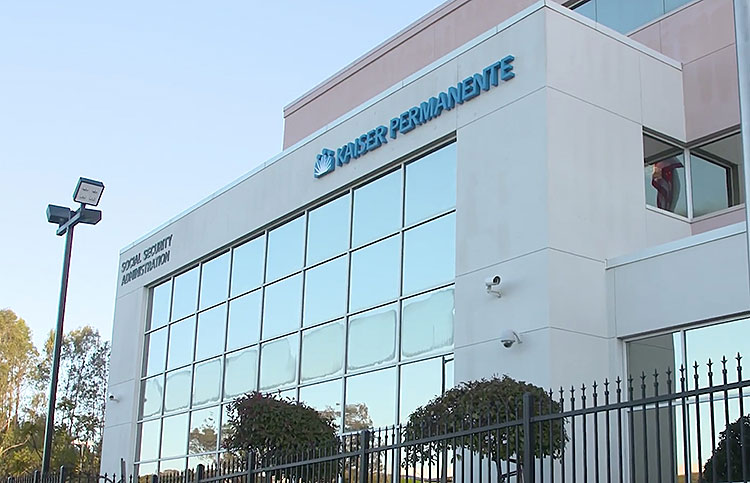By Zach Friend, Supervisor, Second District
Recently the Board of Supervisors considered an “Access to Medical Care” agreement with Kaiser Foundation Health Plan and Kaiser Foundation Hospitals. These agreements are important in ensuring health services are adequately provided to low-income patients.
Given Kaiser’s relatively new entry into our county, there was interest in ensuring they also entered into an agreement (similar to other local health systems) to provide care for our most vulnerable local populations.
What are Access to Medical Care agreements?
The purpose of the agreements is to ensure that these health systems provide care to the lowest-income patients in our community. Specifically, they are designed to ensure that these systems provide inpatient, emergency, and other health care services to low-income (Medi-Cal) and uninsured patients.
What is in the Kaiser agreement?
Through the agreement, Kaiser agrees to provide 2% each year of its commercial dues received annually from residents of Santa Cruz County for health-focused charitable and community benefits to our community. This currently equates to about $4.5 million but may fluctuate.
Here is how Kaiser can meet its annual community benefit commitment:
Contributions for Charity Care: Kaiser may count provision of charity care provided to residents of Santa Cruz County. Charity care may be provided within the County at a Kaiser Permanente provider hospital (Watsonville Community Hospital) or via telemedicine provided by a Kaiser Permanente provider outside the County to residents within the County.
Uncompensated Care to Non-Kaiser Permanente Patients: Kaiser may count toward its annual community benefit commitment Kaiser’s provision of uncompensated care to non-Kaiser Permanente patients who are residents of the County, and the costs of care for which a patient’s payment or third-party payment is not received, including bad debts. Non-Kaiser Permanente patients include individuals who are uninsured, or have non-Kaiser Medi-Cal, or non-Kaiser Medicare.
Grants for the Top Five Health Needs: Kaiser may count toward its annual community benefit commitment grants made to non-profit causes that support any one or more of the top five health needs identified by Kaiser in Santa Cruz County through either its internal Community Health Needs Assessment or the joint Community Health Needs Assessment conducted in partnership with other health system providers and County Health.
Recruitment of Physicians: In recognition that additional physicians and specialists are needed to meet the needs of the Santa Cruz County community, Kaiser may count toward its annual community benefit commitment an amount up to $150,000 per physician spent by Kaiser for recruitment and relocation of physicians to the Permanente Group based in Santa Cruz County, who may provide care to Medi-Cal, Medi-Cruz and indigent patients.
The agreement also allows for Kaiser’s commitment to sustaining services at Watsonville Community Hospital (Hospital), through the hospital’s bankruptcy and ownership transition to the Pajaro Valley Health Care District to be considered toward their community benefit.
Specifically, it includes:
- In-Kind Services: Kaiser may count towards its annual community benefit commitment the dollar value of in-kind services Kaiser provided (consulting, accounting, and administrative services) for the purposes of supporting Pajaro Valley Healthcare District Project to acquire the Hospital out of bankruptcy.
- Initial Grant: Kaiser may count toward its annual community benefit commitment the full dollar value of its 2022 grant of $3,000,000 to the Pajaro Valley Healthcare District for the acquisition of the Hospital.
- Additional Grant: Kaiser may count toward its annual community benefit commitment additional grants paid in 2023 through 2025 to the PVHCD for the acquisition of the Hospital, against Kaiser’s $4,500,000 pledge made in 2022.
How will the Agreement be Reviewed?
During the Board of Supervisors meeting there was an understanding, also shared by Kaiser representatives, that this agreement was a starting point and that as needs evolve in our community there will be additional reviews of the agreement to ensure it is meeting local needs.
Concerns were raised about how the agreement would increase access for current Medi-Cal patients (Kaiser currently does not have any local Medi-Cal patients) and whether Kaiser would start taking local Medi-Cal patients (and if so how many), whether Kaiser would accept non-Kaiser patients (they currently do not) and whether it would expand access to specialists.
Given the evolving nature of the heath care need locally (particularly for low-income residents) and the evolution of the growth of Kaiser locally it was understood that this would need annual review.
The agreement will come with yearly review to the Board of Supervisors (along with the other local Access to Medical Care agreements) to ensure compliance with the agreement and also ensure access to health care is being provided to our local low-income residents.
During those reviews there will be an opportunity to discuss whether the agreement needs to be adjusted in order to improve access for low-income residents.
•••
As always, I appreciate any feedback you may have on this (or any other County issue). I’m maintaining regular updates on social media at www.facebook.com/supervisorfriend and you can always call me at 454-2200.

